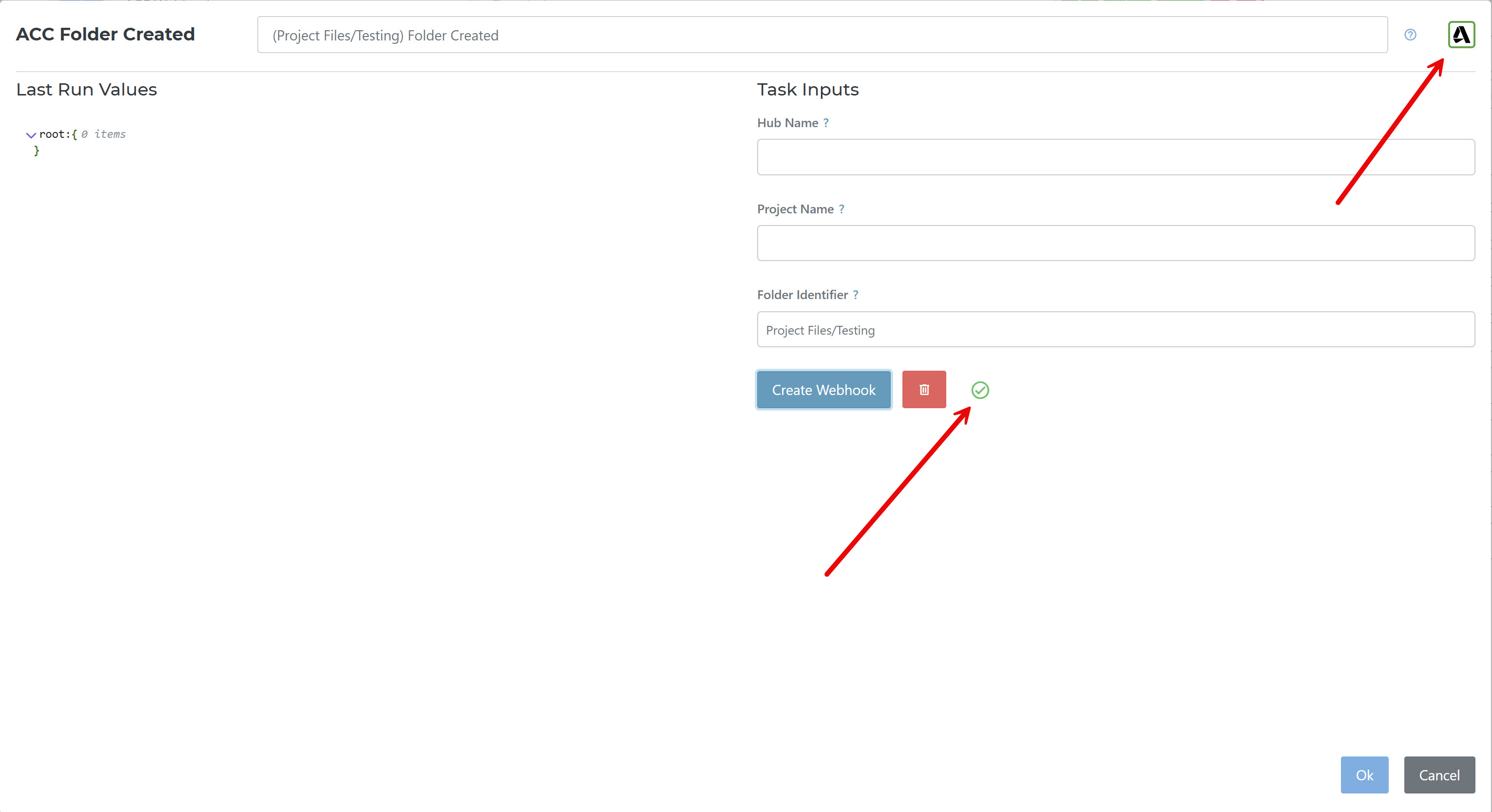Search K
Appearance
Appearance
Trigger Nodes are the entry points for workflows. Each workflow must have exactly one Trigger Node. While you can insert multiple triggers, only a single trigger per workflow is supported—using more can cause inconsistent behavior.
A Trigger Node defines how and when your workflow starts. Unlike Task Nodes (which perform actions), Trigger Nodes listen for external or user-driven events and kick off the automation.
The Trigger Configuration dialog is identical in layout to the Task Node Configuration dialog:
root on first run)Note: Depending on the trigger type, the dialog may require specific input fields, service accounts, or third-party accounts—just like Task Nodes.
Above each Trigger Node, you’ll find three buttons:
The Clone button is not available for Trigger Nodes.

Fires when a new version of a file is created in ACC. Use Case: Automatically process or notify stakeholders upon file updates.
Fires when a new folder is created in ACC. Use Case: Trigger automated provisioning or record-keeping on project structure changes.
Fires when a job is added to an Autodesk Vault job queue. Use Case: Kick off downstream processing when Vault tasks complete.
A manual start trigger available only in the designer UI. Use Case: Ad-hoc execution during testing or debugging.
An interactive trigger exposed via the chat interface. Use Case: Let users run the workflow on demand without leaving chat.
Fires on a user-defined schedule (cron-style). Use Case: Automate recurring processes like daily reports or maintenance tasks.
Fires when a specific action is recorded in Mesh. Use Case: Start workflows based on user interactions or events in Mesh.
Fires on a predefined chat event in Mesh. Use Case: Integrate conversational triggers into automation.
Fires when a chat model request is received. Use Case: Start AI-driven workflows upon user prompts.
Fires when a Mesh widget emits an event (e.g., button click). Use Case: Connect UI interactions to backend processes.
An HTTP GET endpoint that triggers the workflow. Use Case: External systems start workflows via query parameters.
An HTTP POST endpoint accepting multipart form data. Use Case: Trigger workflows with file uploads or mixed content.
An HTTP POST endpoint for JSON or form-encoded payloads. Use Case: Start workflows via standard API calls with structured data.
Fires when a MinuteView form is submitted. Use Case: Process user submissions or form-based inputs through automation.